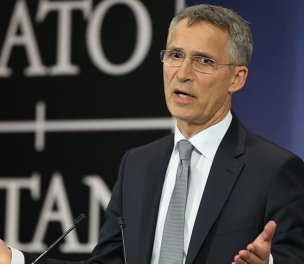Photo: Ministry of National Defense / Twitter
Click to read the article in Turkish
The Ministry of Foreign Affairs has responded to a press release issued after a meeting of European Union foreign ministers regarding possible sanctions on Turkey due to its hydrocarbon activities in the Eastern Mediterranean.
"The unconditional support of the EU to [Greece and Southern Cyprus] who are trying to ignore the legitimate rights and interests of our country and the Turkish Cypriots in the Eastern Mediterranean increases the tension even more," the ministry said in a written statement.
EU foreign policy chief Josep Borrel said after the meeting that the sanctions could possibly apply to Turkey's ships and the EU was listing the names related to the dispute.
"The EU's criticism on the hydrocarbon activities of our country within the continental shelf and its demands that we stop these activities is out of line," the Ministry further said.
"As confirmed by the EU Court of Justice, the EU has no authority in this matter. This request is against both the EU's own acquis and international law," it added.
Turkey also called on the EU member states not to support Greece's "maximalist demands" under the pretext of union solidarity."
"Greece is not an archipelago state. It is against international law and jurisprudence for Greek Islands, especially Meis, to have a continental shelf," it said.
The statement also stressed that the EU "should "act impartially and be an honest mediator."
Earlier, Borrell said "in the absence of progress in engaging Turkey we could develop a list of further restrictive measures that could be discussed at the European Council on September 24."
On Tuesday (August 25), Germany's Minister of Foreign Affairs Heiko Maas visited Greece and Turkey, encouraging both countries to engage in dialogue to avoid conflict in the Eastern Mediterranean.
One day later, US President Donald Trump called President Recep Tayyip Erdoğan and PM of Greece Kyriakos Mitsotakis and similarly urged them to start a dialogue.
Maritime border claims of Turkey and GreeceMaritime borders according to the deal signed by Turkey and Libya's Governmenf of National Accord (GNA) on November 27, 2019
Maritime borders according to the Greece-Egypt deal on August 7:
|
Latest developments in the Eastern MediterraneanOn July 28, Turkey announced after Germany's diplomatic efforts that it suspended hydrocarbon exploration activities, in the Eastern Mediterranean, which had been underway since early 2019, and stated that it was ready to talk with Greece. On August 6, Greece and Egypt signed a maritime border agreement. On August 10, Turkey announced that its drillship Oruç Reis would resume energy exploration in the Eastern Mediterranean. It said the ship will continue its work along with the ships Cengiz Han and Ataman until August 23. On August 14, the EU foreign miniters discussed the crisis at an extraordinary meeting, calling on Turkey to end hydrocarbon exploration activities in contested waters. On August 16, Turkey issued a Navtex, announcing that its drill ship Yavuz will continue its work exploring for energy resources off the island of Cyprus. On August 23, Turkey issued another Navtex, stating that the Oruç Reis vessel would continue its activities until August 27. On August 24, Greece held joint naval drills with the US in the south of Crete island. One day later, Turkey conducted naval exercises with Italy. On August 25, Germany's Minister of Foreign Affairs Heiko Maas visited Athens and Ankara to encourage the two countires to have direct talks. On the same day, Turkey held replenishment exercises with Italy in the Eastern Mediterranean. On August 26, US President Donald Trump had phone talks with President Recep Tayyip Erdoğan and Prime Minister of Greece Kyriakos Mitsotakis, urging them to reduce tensions and start dialogue. On the same day, Turkey and the US conducted joint maritime exercises. On August 27 and 28, EU foreign ministers met with the Eastern Mediterranean crisis on the top of their agenda. The Union's foreign polict head Josep Borrell said after the meeting that Turkey's ships might be sanctioned if they continued hydrocarbon activities. |
(EKN/VK)




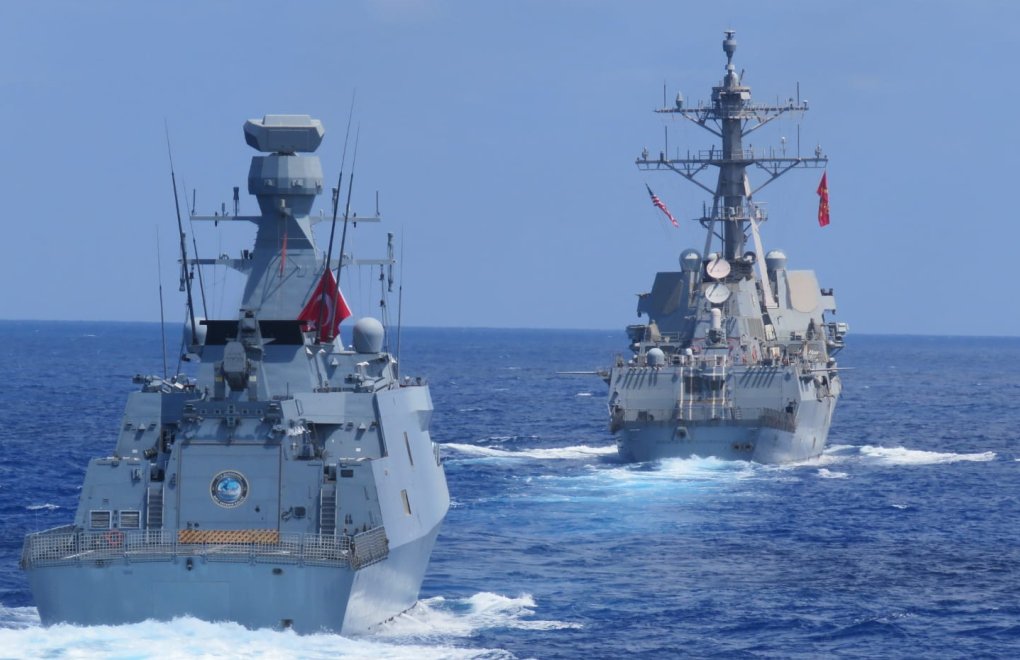
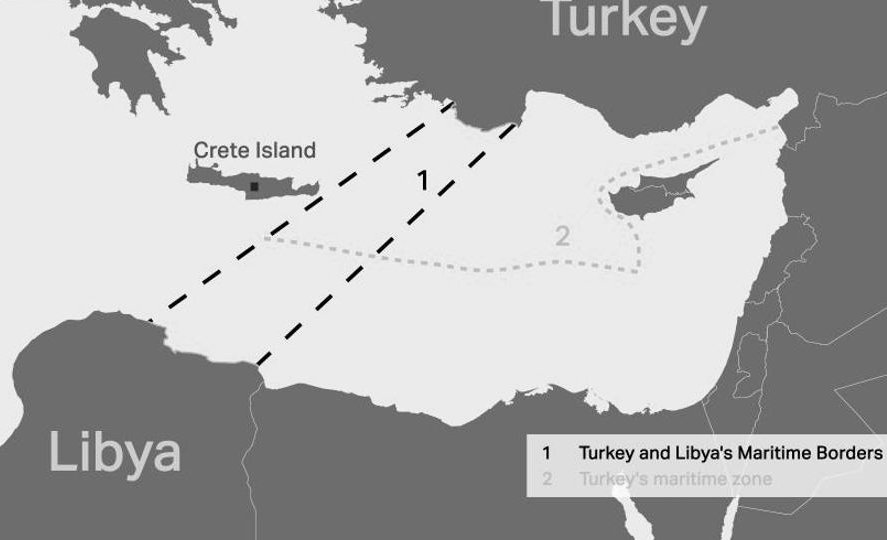 (Map: TRT)
(Map: TRT)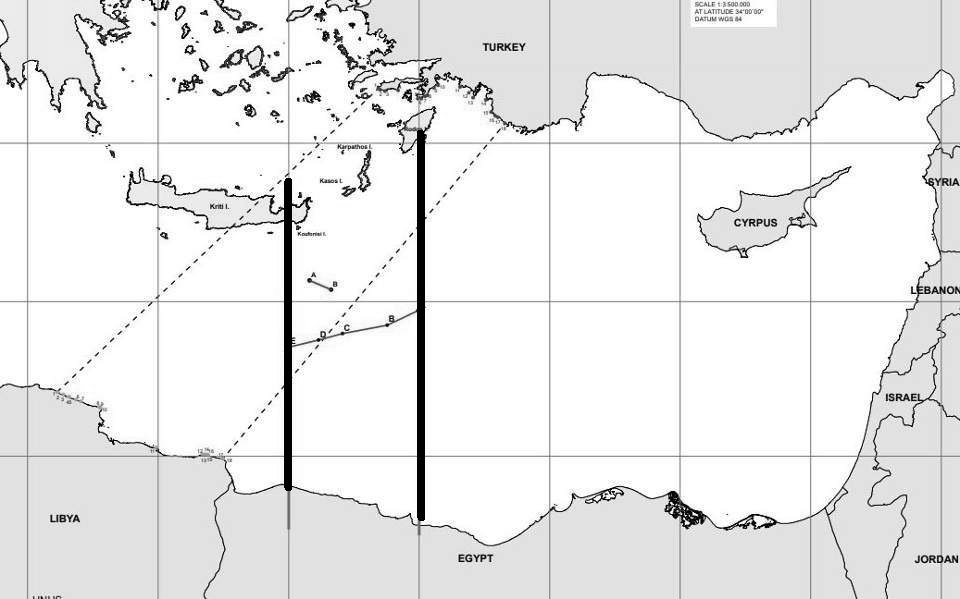 (Map: Ekathimerini)
(Map: Ekathimerini)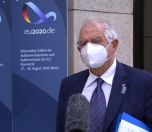
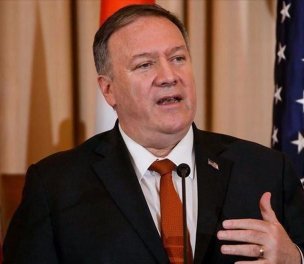
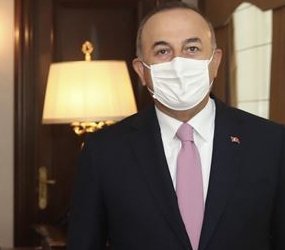
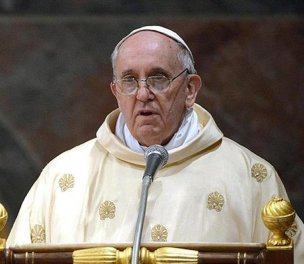
sa.jpg)
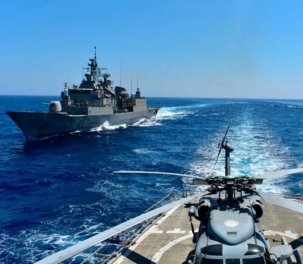
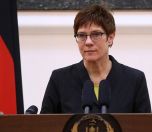
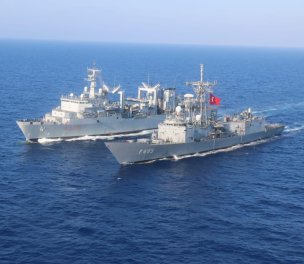
jhg.jpg)
